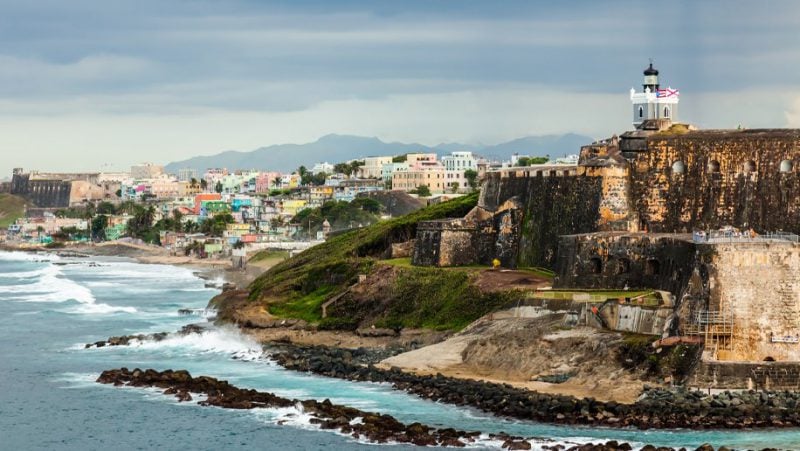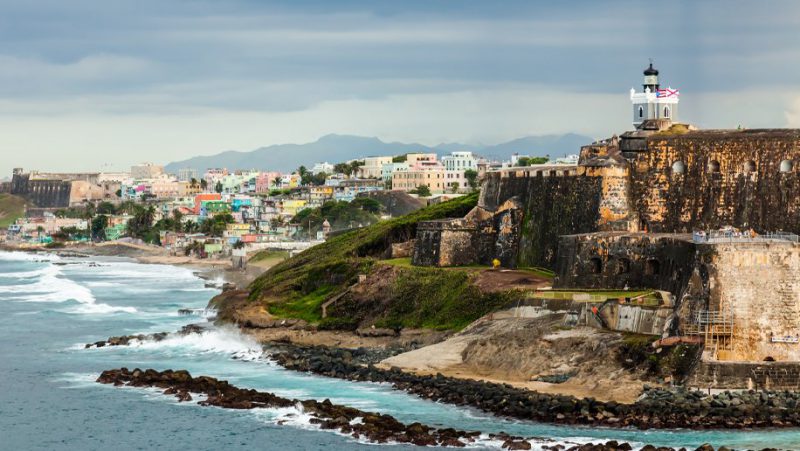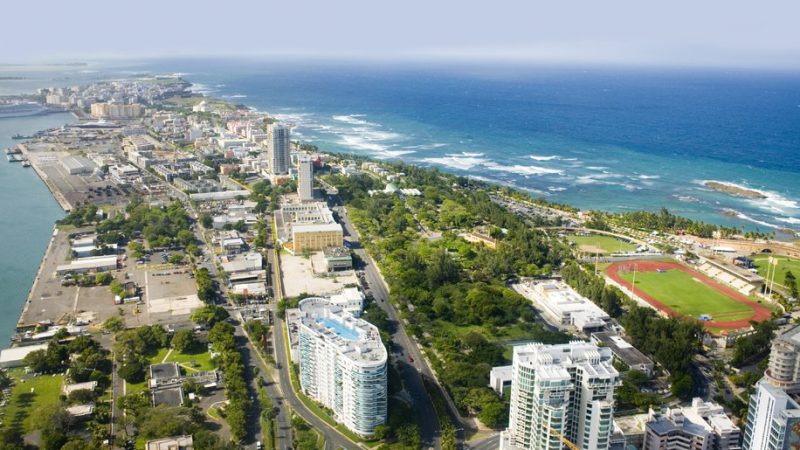Puerto Rico Loosens COVID Restrictions
The island destination lifts curfews and testing for vaccinated mainlanders
May 23, 2021

Perhaps it’s easy to associate Puerto Rico with the great misfortune it suffered last decade — the terrible damage wrought by Hurricane Maria in 2017. Now, though, it’s also easy to identify PR as a developing destination for the sun-seeking traveler post-COVID.
For example, in mid-May, the governor’s executive order eased up entry protocols for vaccinated inbound domestic travelers. The order managed to eliminate, for those fully vaccinated, any COVID-19 PCR molecular testing as a prerequisite to entry.
It mitigated related restrictions, too, designed to safeguard both residents and visitors earlier in the pandemic–but made more lenient now in order to help revive both business and leisure visitation.
The moment marks a sharp contrast to conditions only a month or two ago when new daily reported cases started surging to 1,109 cases from around 200 a day in March. Those spikes were driven, according to reports from the New York Times, by a confluence of factors, “including the arrival of more contagious variants, a tide of spring break tourists and celebrations tied to Holy Week.”
Those rates have dropped precipitously since, especially as the destination continues an aggressive campaign to vaccinate residents.
“Puerto Rico has prioritized health and safety from the onset of the pandemic, becoming the first U.S. destination to implement an Island-wide curfew, among other measures developed to safeguard residents and visitors. As restrictions loosen, we look forward to welcoming travelers seeking to responsibly explore our Island, immerse themselves in unforgettable culture, unique natural wonders and delicious cuisine, while taking advantage of the ease of travel that comes with Puerto Rico being a U.S. territory, including no need for a passport for U.S. citizens,” said Brad Dean, CEO of Discover Puerto Rico.

Retail businesses, for example, were raised from 30 to 50 percent; the Island’s coliseums, popular athletic and entertainment venues, are open again, albeit at only 30 percent capacity (attendees are still required to present either a vaccination card or negative antigen test result to gain admission); in parks, pools and at the beach, for vaccinated individuals, masks are no longer required; and the consumption of alcoholic beverages is allowed once again.
Puerto Rico is also a great option for those still working remotely. According to authorities, the island has 31 internet providers and three 5G broadband networks–making it much more amenable to successful teleconferencing than just a few years ago.
Needless to say, the island remains a great setting for memorable cultural, geographic and culinary exploration–especially considering the ease of travel there, says Brad Dean, CEO of Discover Puerto Rico, the island’s main tourism organization. He reminds inbound visitors that, at least for U.S. citizens, there’s no need to bring a passport; no need for currency exchange or phone plan adjustments.
And the upside? The Island’s storied culture, deriving as it does from its Spanish, Taino and African heritages; its remarkable natural wonders, including El Yunque, the U.S. Forest Service’s only rainforest; its five bioluminescent bays, stunning pink salt flats; “not to forget our turquoise waves, emerald hills and electric-orange sunsets,” says Dean; and the island’s booming culture of coffee growing, roasting, drinking.
In addition, he points to the recent reopening of El Conquistador Resort in Fajardo, as well as the planned opening, later this year, of the Distrito T-Mobile that is expected to become a vibrant and popular setting for events, conventions and concerts in the whole Caribbean region.
A full overview of the revised measures and arrival requirements is available at the Discover Puerto website.




